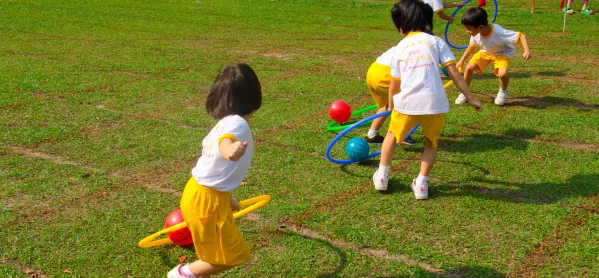My alarm goes off at 5.30am. It’s an early start, yes, but it’s a relaxed one – the calm before the storm.
After a quick stretch, the first thing I do every morning is put the kettle on. You can take the girl out of Yorkshire, but you can’t take Yorkshire out of the girl. Yorkshire Tea is the best start to the day. A quick shower, uniform on, I have a 10-minute walk to the metro, an absolute blessing to get me to and from school every day.
I meet another colleague every day and we commute together. He’s from Glasgow, another expat teacher at school so chatting to him is easy. One thing I struggled with when I first arrived in Malaysia was talking casually with others. Students wouldn’t understand what I was saying and colleagues would not understand my jokes, which could cause some very awkward moments. After almost four years in Malaysia, my northern accent has become a little weaker and my sarcasm level has decreased. Still, my friends and students pick up on the words and phrases which I say differently and we laugh about it now.
Today is Monday, so I grab a quick coffee and then head outside for gate duty. Unlike the UK, every morning is warm although sometimes wet. Today I am lucky and I stay dry. Standing by the school gate in the morning is actually quite nice – I like wishing the students a good morning and making sure the first face they see at school today is a smiling one.
I don’t have class Period 1 so I spend it preparing plans and resources for the day. Before I know it, Period 2 comes around and I have my most challenging class: Year 10 IGCSE. Today, we have a practical class, which they love.
When I first arrived, I found Year 10 and Year 11 the most challenging – they’d experienced the ‘old school’ teaching style for so long they believed a teacher giving orders and students following was the only way to learn.
They wanted step by step instructions for everything and would really struggle if I asked them to make a decision or give ideas. I teach in a much more student-centred, guided discovery style – the students weren’t used to being able to make decisions for themselves or having time to experiment, which led to behaviour problems. With this new found power, students would push the boundaries.
Persistence was key, making students see how they could take control of their own learning, but with this ownership came with responsibility. International teaching is all about playing the long game, making compromises, learning about the expectations of different cultures and experimenting with different teaching styles.
After breaktime, I have my Year 9 class for BoxFit – with this class, student-centred learning is a huge success. The students in this class are polite, energetic, engaged and willing to give all physical activities a try. I have worked hard to nurture great attitudes and it has paid off.
After Year 9 is Year 11 IGCSE, unlike most GCSE PE classes in the UK, this class is very small with only six students which can make team games challenging to organise. If I could change one thing about teaching here in Malaysia, it would be the mentality which leads to many adults placing a priority on ‘academic’ subjects such as mathematics, science, business and economics. Parents tend to push their children towards those subjects and do not care much for subjects like PE and art.
The students suffer for it: they’re very stressed because they have no release. Social skills and confidence levels can be low as students are not used to having to collaborate with others. These are life skills which I try to emphasise during my PE classes. I try to open the eyes of my students and their parents to how PE can help them throughout their lives. This is a long journey which is slowly seeing results.
Rachel Ford is a PE teacher at Beaconhouse Newlands International School, Kuala Lumpur, Malaysia



